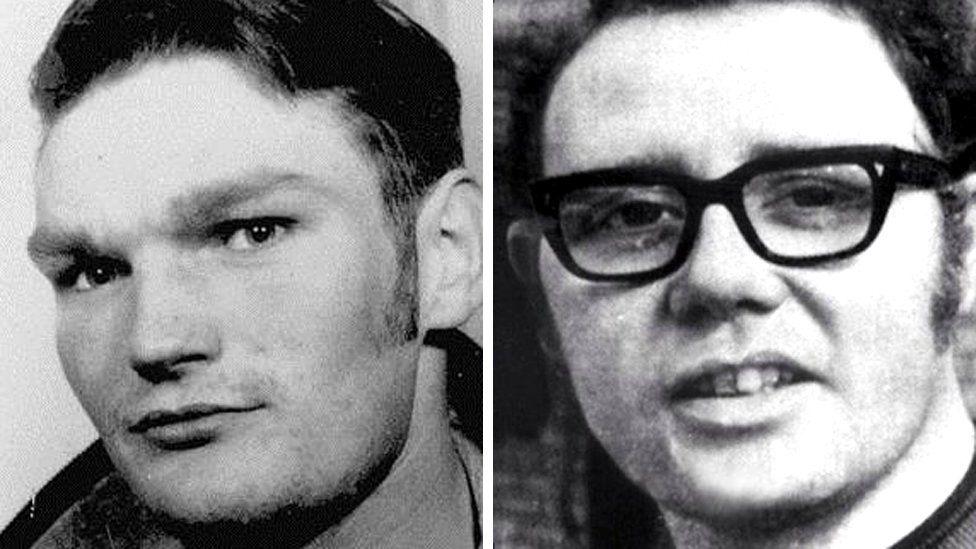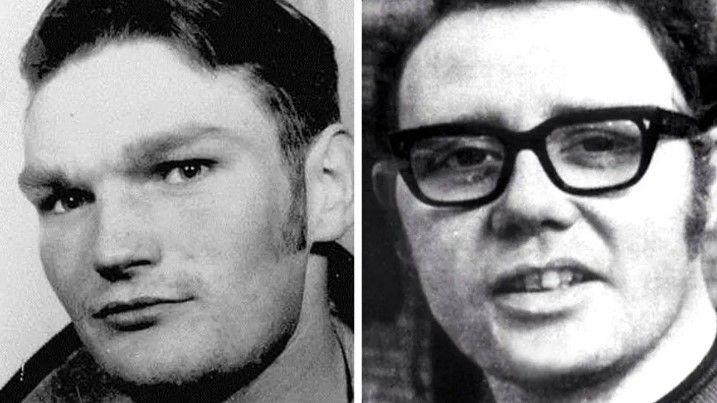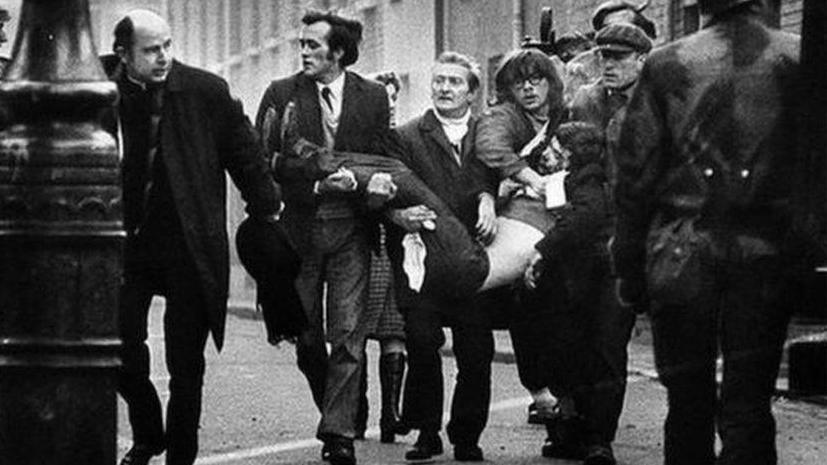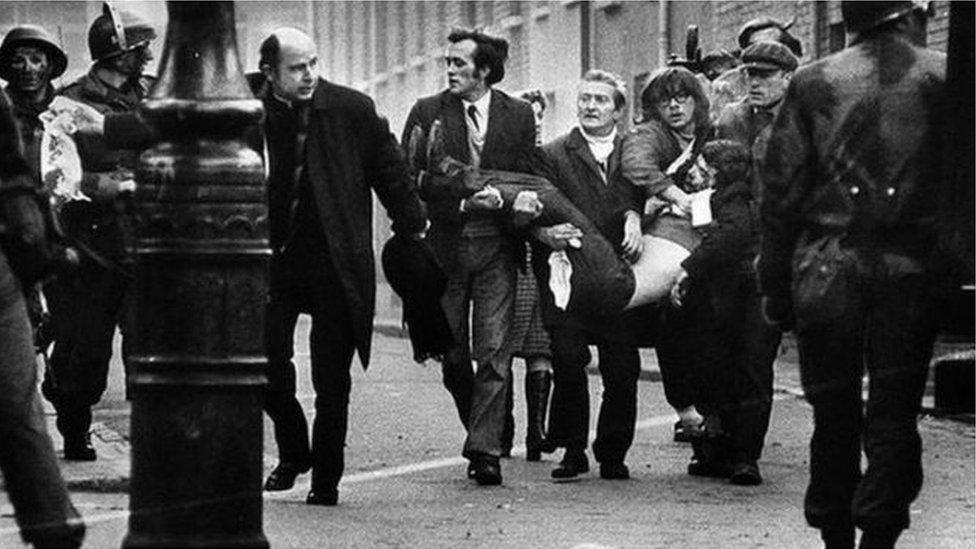Soldier F trial told Bloody Sunday evidence 'inconsistent'

Soldier F is accused of murdering James Wray (left) and William McKinney
- Published
The trial of a former paratrooper accused of murdering two men on Bloody Sunday has been told the evidence against him is "fundamentally inconsistent".
Soldier F, whose anonymity is protected by a court order, denies murdering James Wray, 22, and William McKinney, 26, as well as five counts of attempted murder.
The two men were among 13 people who were shot dead by the Parachute Regiment at a civil rights demonstration in the Bogside area of Derry in January 1972.
On Monday, a defence barrister told the court it would be "unsafe" to convict the Army veteran.
Defence barrister Mark Mulholland said there is "simply no evidence… to meet the necessary threshold" for a conviction.
He said it had been the prosecution's promise that its "decisive evidence" – the military witness statements made by Soldier G and Soldier H from 53 years ago – would be supported by civilian evidence.
Those military witness statements, the prosecution said earlier in the trial, are the only evidence "capable of proving" Soldier F fired at civilians in Glenfada Park North.
Judge Patrick Lynch has previously in proceedings rejected a bid by the defence to have the statements omitted as evidence.
On Monday, Mr Mulholland told the court Soldiers G and H's hearsay evidence is "unconvincing" and "fundamentally inconsistent".
He said there is "no support" in the civilian evidence for the prosecution's proposition that G and F entered Glenfada Park North "both opening fire in or about the same time followed by H, who himself opens fire".
"Ultimately the starting point in our application is that this simultaneous firing, as found in the initial accounts of G and H, is simply not borne out by the civilian evidence," Mr Mulholland said.
'An unreliable witness'
The defence barrister said there was now no ability to test the reliability of the changing accounts made by Soldiers G and H of events on Bloody Sunday.
Their statements were provided to the Royal Military Police (RMP) in 1972, as well as statements and oral evidence given to the Widgery Inquiry the same year, and later the Saville Inquiry.
Mr Mulholland said there was a danger in "cherry-picking certain aspects" of the hearsay evidence when "it is the decisive evidence in this case."
Soldier G is deceased and Soldier H is unwilling to testify in court.
Mr Mulholland said Soldier H's changing accounts show him to be "an unreliable witness from start to finish".
"This is a liar, a fabricator," Mr Mulholland said, adding the court was at a disadvantage by not being able to question Soldier H as a witness.
Soldier F's non-jury trial began last month at Belfast Crown Court, where he is screened from public view by a curtain around part of the dock.
The former paratrooper has entered pleas of not guilty to all the charges.
The case is being heard by a judge sitting without a jury.
The trial continues.
Who is Soldier F?
Soldier F is a former British soldier who served with the Army's Parachute Regiment in Northern Ireland during the Troubles.
He cannot be named due to an interim court order granting his anonymity.
The decision to charge Soldier F was taken by the Public Prosecution Service (PPS) in 2019.
He was one of 18 former soldiers reported to the PPS as a result of a police investigation, which followed the public inquiry into Bloody Sunday conducted by Lord Saville.
But he was the only one charged.
Two years later, the PPS dropped the case after the collapse of the trial of two other veterans who had been accused of a 1972 murder in Belfast.
But the prosecution resumed in 2022 after a legal challenge.
- Published18 February

- Published14 June 2024

